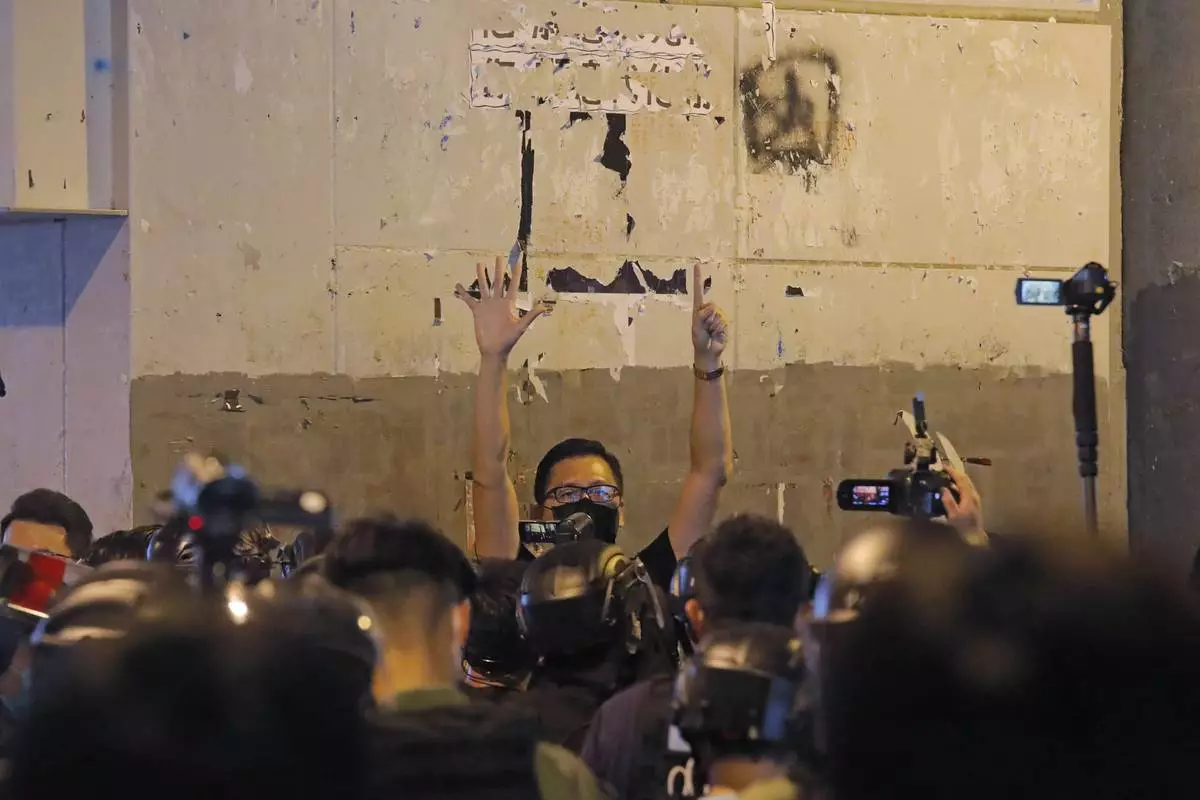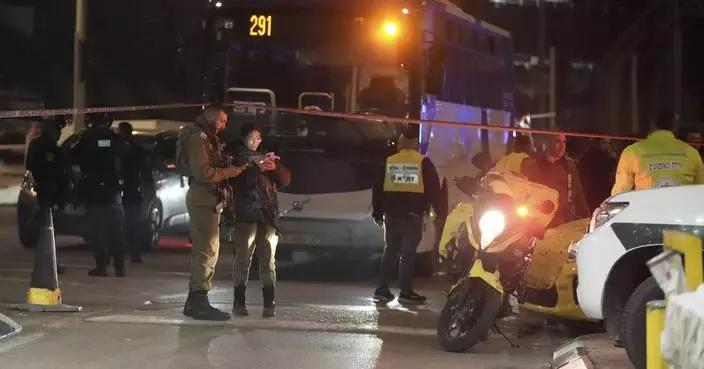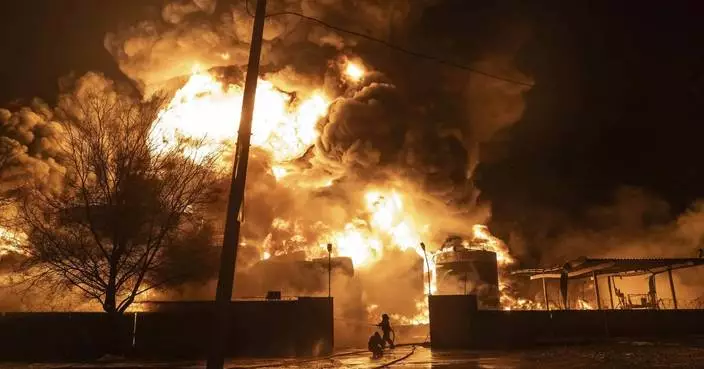BRUSSELS (AP) — European Union ministers on Thursday agreed to let Bulgaria and Romania fully integrate into Europe’s ID-check free travel zone, known as the Schengen area, by lifting land border controls from next year, the EU's Hungarian presidency said.
Bulgaria and Romania joined the Schengen area in March after years of negotiations, providing free access for travelers arriving in both countries by air or sea.
However, land border checks remained in place due to opposition, chiefly from Austria, over concerns that the two countries were not doing enough to prevent migrants from entering without authorization.
“Interior ministers have just adopted a decision to lift internal land border controls with and between Bulgaria and Romania,” the Hungarian presidency posted on X. “A great victory for Bulgaria, Romania, and all of Europe!” Land border checks will end from Jan. 1.
Romania’s Prime Minister Marcel Ciolacu said the decision would be a “major benefit” to his country’s economy and enable “faster journeys home for the millions of Romanians” living and traveling within the Schengen area.
Freedom of movement is central to European integration. More than 420 million people live in the Schengen area, and their freedom to move across borders helps businesses and tourism to flourish.
The Schengen Area was established in 1985. Before Bulgaria and Romania’s partial admission, it was comprised of 23 of the 27 EU member countries, along with Switzerland, Norway, Iceland and Liechtenstein. Around 3.5 million people cross an internal border each day.
It’s one of the main achievements of the European project. It started as an intergovernmental project between five EU countries– France, Germany, Belgium, the Netherlands and Luxembourg, and has gradually expanded to become the largest free travel area in the world.

Hungary's Interior Minister Sandor Pinter speaks with the media during arrivals for a meeting of EU justice and interior ministers at the European Council building in Brussels, Thursday, Dec. 12, 2024. (AP Photo/Omar Havana)
HONG KONG (AP) — A Hong Kong judge on Thursday convicted a pro-democracy former lawmaker of rioting during mob violence at a subway station at the height of the city’s anti-government protests in July 2019.
Prosecutors accused Lam Cheuk-ting of provoking a group of about 100 men armed with wooden poles and metal rods who attacked protesters and bystanders at a train station. The men, all clad in white shirts, in contrast with the black worn by protesters, claimed to be protecting their homeland in Yuen Long, a residential district in Hong Kong's New Territories.
Dozens of people, including Lam, were injured in the violence, a key chapter that escalated the protest movement as the public criticized police for their delayed response. The landmark ruling could shape the city's historical narrative of the incident.
Judge Stanley Chan ruled that Lam was not acting as a mediator as he had claimed, but rather was trying to exploit the situation for political gain.
He said Lam's words directed at the white-shirted men had “fanned the flames." Lam, who is already in prison on a national security charge, is expected to be sentenced at a later date.
Chan was still reading out the verdicts for six other lesser-known co-defendants in the same case.
The prosecution alleged the seven defendants had either berated the white-shirted men, used obscene hand gestures, hurled objects or shot jets of water by pointing a hosepipe at them.
The defendants had pleaded not guilty to the rioting charge.
During the trial, Lam said he chose to go to Yuen Long because he hoped his then position as a lawmaker could pressure the police to act quickly. He said he could not leave the scene while fellow residents were in danger. Some defendants who targeted the white-shirted men with a hosepipe argued that they were just trying to stop the attackers from advancing.
The 2019 protests were sparked by a proposed extradition law that would have allowed criminal suspects in Hong Kong to be sent to the mainland for trial. The government withdrew the bill, but the protesters widened their demands to include direct elections for the city’s leaders and police accountability.
The social movement was the biggest challenge to the Hong Kong government since the former British colony returned to Chinese rule in 1997. In response, Beijing imposed a national security law in 2020, leading to the arrest of many activists. Others were silenced or went into exile.
In November, Lam was sentenced to six years and nine months in jail in the city's biggest national security case.
More than 10,000 people were arrested in connection to the protests for various crimes, such as rioting and participating in an unauthorized assembly. About 10 white-shirted men were convicted in other cases related to the mob violence in July 2019, local media reported.

FILE- A pro-democracy lawmaker Lam Cheuk-ting, center, gestures with five fingers, signifying the "Five demands - not one less" as he is surrounded by riot police during a news conference to mark one-year anniversary of the Yuen Long subway attack at the subway station in Hong Kong, July 21, 2020. (AP Photo/Kin Cheung, File)











